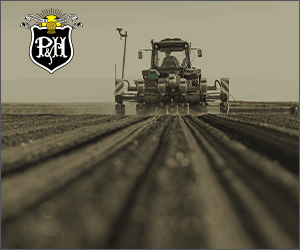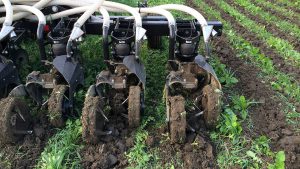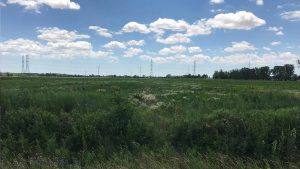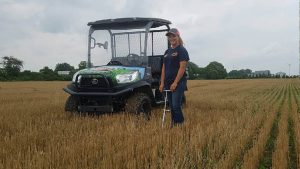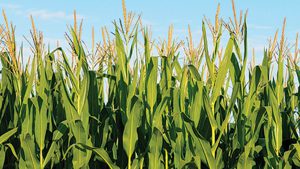Cleaner every year
AN UPDATE ON THE CLEANFARMS PROGRAM
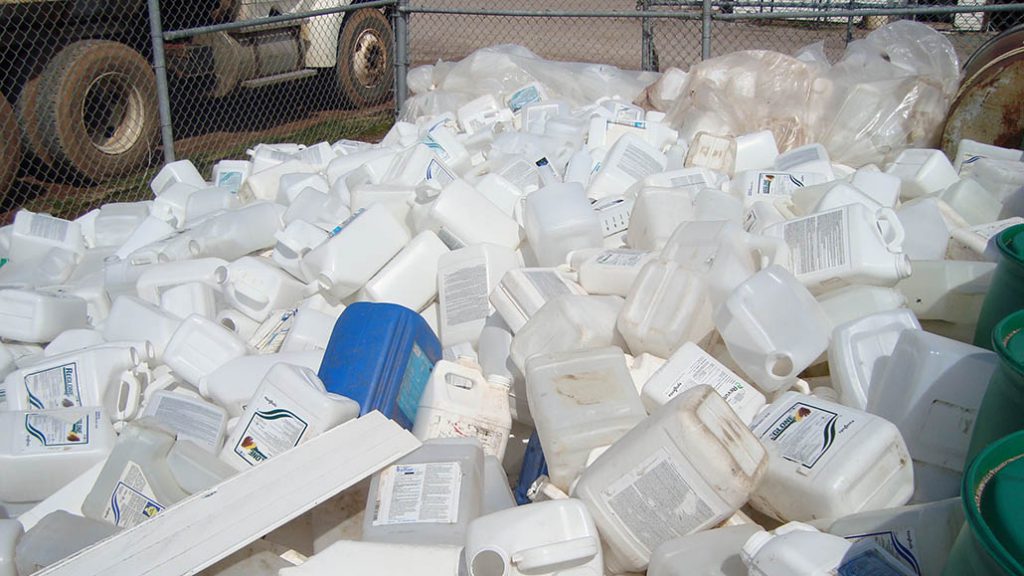
NEXT YEAR, CLEANFARMS will celebrate it’s official tenth anniversary — but it’s already celebrating many outstanding accomplishments related to helping farmers minimize their environmental impact, stretching back to its origins as a jug-collection program 30 years ago.
Last year alone, the national non-profit company (funded by the Canadian crop protection, fertilizer, seed, and agricultural plastics industries) enabled the collection of nearly 5.8 million empty pesticide and fertilizer containers, and nearly 370,000 empty seed and pesticide bags.
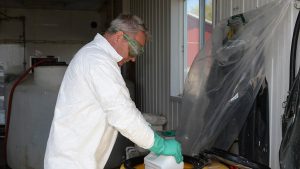
Also in 2018, Cleanfarms achieved a national increase in recovery volume of empty small plastic containers of 14 per cent over 2017.
In Eastern Canada, collection of empty agricultural seed, pesticide, and fertilizer bags bested 2017 volumes by 22 per cent.
“The largest increase occurred in Quebec where recovery numbers jumped to nearly 194,000 kg from about 110,000 kg in 2017,” says Cleanfarms general manager Barry Friesen. “This is because in Quebec, fertilizer manufacturers decided to take back the empty bags through Cleanfarms’ bag collection program and this created an upswing in farmer participation.”
2018 also marked the first year of the provincially-regulated grain bag recycling program in Saskatchewan. Though this program is just getting underway, it collected nearly 1,260 tonnes of grain bag plastic for recycling last year and at least that much this year in only the first five months of 2019. Most of this recovered material is used in the manufacture of other agricultural plastics such as flexible irrigation pipe.
The rate of recovery of plastic jugs, of which nearly 126 million in total have been collected over the last three decades, was about 65 per cent in 2018.
“We are seeking to achieve a 100 per cent recovery of these containers in this 30th anniversary year,” says Friesen. “To reach this ambitious goal, we’ve boosted our promotion and awareness activities and we’re asking farmers to join us in this special effort because every jug counts.”
LONG TERM PROGRESS
Recent achievements aside, Cleanfarms has obviously made long-term progress in other areas, such as the expansion of materials that can be accepted into its program. Pilot programs for plastic wrap for straw and hay bales and for plastic twine began in Manitoba in 2013 and Cleanfarms is now expanding the pilots to other provinces, including Alberta.
Cleanfarms also has plans to extend its reach into wider geographical areas presently not well-served. Along the way, new advances in the recycling process have enabled some types of plastic, like that used in plastic containers, to be shredded and melted into useful items, such as farm drainage tile.
In 1998, an initiative to collect and properly dispose of any unwanted pesticides began. It later expanded in 2009 to include unused livestock medications. In 2018 alone, almost 184,000 kg was collected and disposed of safely. Cleanfarms offers this essential program to Canadian farmers, in partnership with the Canadian Animal Health Institute, rotating the collection regions across Canada every three years.
BUILDING ON INTEREST AND SUCCESS
As Cleanfarms maintains and grows its various initiatives, some things work in its favour.
“There is increased interest in agricultural plastics recycling, farmers, municipalities, industry, and government are concluding that we need to find solutions to manage all the plastic packaging and products used on the farm,” Friesen explains. “The challenge is to establish this as a priority. We need to agree on province-wide solutions and this will require investments and commitments.”
And while there is also broad increased attention from consumers, governments, and companies across the globe about plastics and single-use plastics in particular, Friesen says it’s important to be clear about why single-use plastics are critical in agriculture.
Plastic containers are ideal to transport, deliver, and keep secure agricultural crop protection and health products, he says, but when empty, they should be recycled or otherwise managed properly.
There is also an issue of lack of recycling markets for film plastics, which is an issue across Canada and common to all recycling stakeholders, agriculture and non-agricultural. Cleanfarms, however, has markets for its agricultural plastic film (e.g. grain bags and silage wrap) and is continuing to ship these materials to end-markets. Friesen reports that ag film recycling is gaining traction in Ontario, but he says that to maximize recycling impact and ensure efficiencies, a national program is needed.
ONTARIO GOALS
In 2016, Cleanfarms launched a permanent voluntary collection program for seed and pesticide bags in Ontario and because farmers were looking for ways to manage empty bags, Friesen reports that participation has been very good. Fueled by the success of this program in Eastern Canada, Cleanfarms is pilot testing the collection of seed and pesticide bags in Manitoba, Saskatchewan, and Alberta in 2019.
However, in Ontario, bags for fertilizer and feed are not yet accepted. Cleanfarms is discussing with industry how this can be addressed.
“End-of-life stewardship continues to be a priority for growers in Ontario and across Canada,” says Friesen. “The ag industry and governments need to get more involved to help growers identify options for new programs and build on the success of programs already in place.”
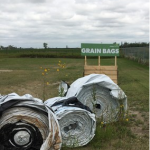
SINGLE USE PLASTICS BAN
Ag-plastics not targeted
The federal government has announced their intention to ban some single use plastics by 2021 and that has left many Canadian farmers wondering how it will impact their use of plastics on the farm.
Cleanfarms says farm plastic products such as grain bags, and packaging such as jugs and bags, are not on the list of single use plastics targeted for bans. However, there could be an increase in regulations for their use and disposal.
“For example, in Saskatchewan, grain bag recycling is now required under a provincially-regulated industry stewardship program,” says Barry Friesen, general manager of Cleanfarms. “To cover the cost of recycling the bags, which weigh hundreds of kilograms, an environmental handling fee is applied at purchase.”
The Saskatchewan grain bag handling fee, the first of its kind in the Canadian agricultural industry, has been in place since November 2018. Saskatchewan farmers who use grain bags for storage will see it on sales receipts as they purchase grain bags for the coming harvest. The fee is 25 cents a kilogram which can amount to about $31 on a 9-foot by 200-foot grain bag.
For more information, go to cleanfarms.ca. •


